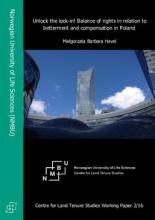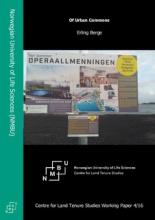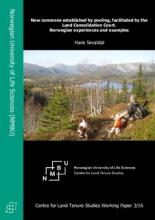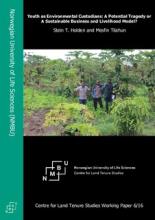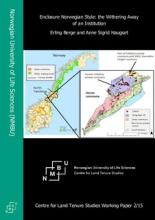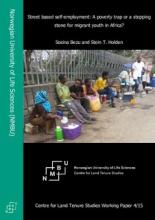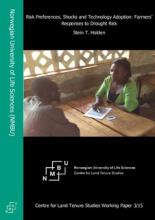Land Library
Bienvenue dans la bibliothèque du Land Portal. Explorez notre vaste collection de ressources en libre accès (plus de 74 000), comprenant des rapports, des articles scientifiques, des articles de recherche, des publications évaluées par des pairs, des documents juridiques, des vidéos et bien plus encore.
/ library resources
Showing items 37 through 45 of 73.Many Polish cities are faced with a dilemma: to enact their local land-use plans and be exposed to the immediate financial consequences of their adoption, or to protect their budgets against these costs and give up control of the development of the cities.
The paper is part of a joint presentation with Marius Grønning at the 5th International and Interdisciplinary Symposium of the European Academy of Land Use and Development (EALD) held in Oslo 3-5 September 2015.
Population growth leads to growing land scarcity and landlessness in poor agrarian economies. Many of these also face severe climate risks that may increase in the future.
Paper presented at a Workshop at Universidad Publica de Navarra (Navarre Public University), Pamplona-Iruña (Spain), November 5-7, 2009.
Youth unemployment and migration is a growing challenge that needs more political attention in many countries in the world, particularly countries with rapid population growth and economic transformation.
Paper prepared for presentation at the “2016 WORLD BANK CONFERENCE ON LAND AND POVERTY” The World Bank - Washington DC, March 14-18, 2016
More than 200 years after the King sold one of the “King’s commons” of Follafoss (located inthe current Verran municipality) to urban timber merchants, local people in some ways still behave as if the area is a kind of commons.
A significant percentage of youth in urban Africa is employed in the informal sector. The
informal sector is more accessible than the formal sector for people with low human and
financial capital, such as youth migrants from rural areas. But the sector is also generally
Climate risk represents an increasing threat to poor and vulnerable farmers in drought-proneareas of Africa. This study assesses the maize and fertilizer adoption responses of food insecure farmers in Malawi, where Drought Tolerant (DT) maize was recently introduced.

